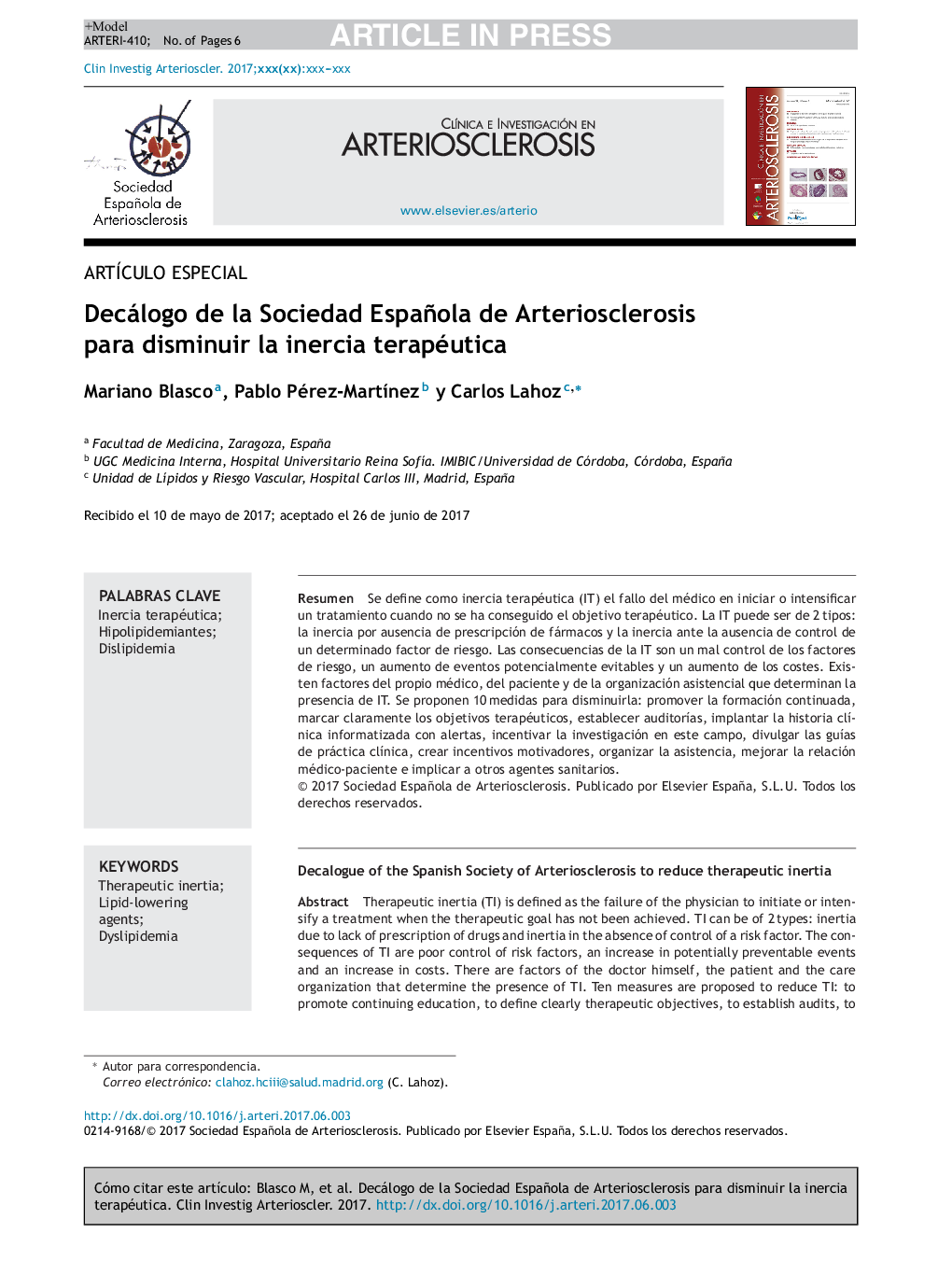| Article ID | Journal | Published Year | Pages | File Type |
|---|---|---|---|---|
| 5593005 | Clínica e Investigación en Arteriosclerosis | 2017 | 6 Pages |
Abstract
Therapeutic inertia (TI) is defined as the failure of the physician to initiate or intensify a treatment when the therapeutic goal has not been achieved. TI can be of 2Â types: inertia due to lack of prescription of drugs and inertia in the absence of control of a risk factor. The consequences of TI are poor control of risk factors, an increase in potentially preventable events and an increase in costs. There are factors of the doctor himself, the patient and the care organization that determine the presence of TI. Ten measures are proposed to reduce TI: to promote continuing education, to define clearly therapeutic objectives, to establish audits, to implement computerized medical records with alerts, to encourage research in this field, to disseminate clinical practice guidelines, to create motivational incentives, to organize care, to improve the doctor-patient relationship and to involve other health care providers.
Related Topics
Life Sciences
Biochemistry, Genetics and Molecular Biology
Physiology
Authors
Mariano Blasco, Pablo Pérez-MartÃnez, Carlos Lahoz,
